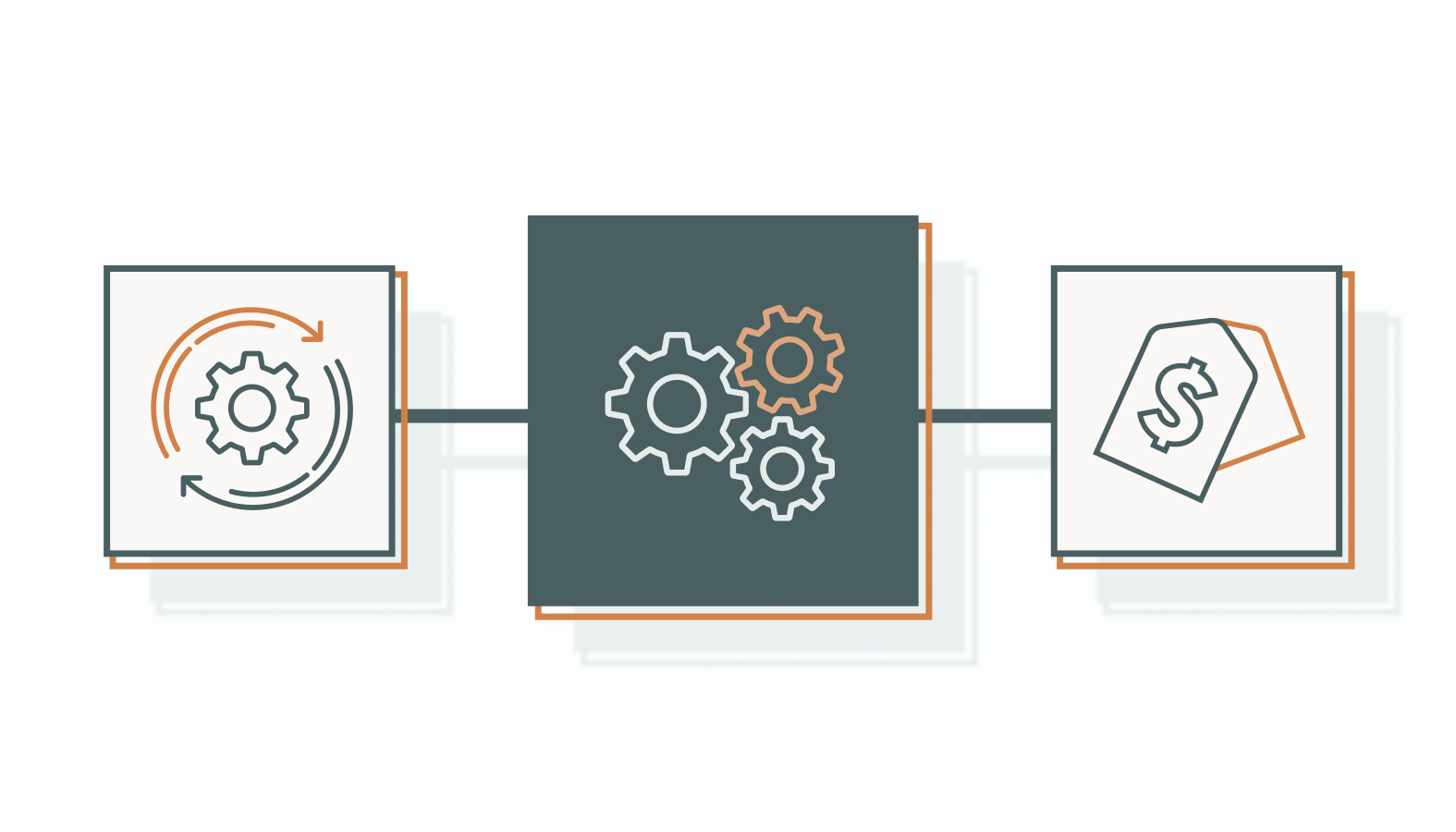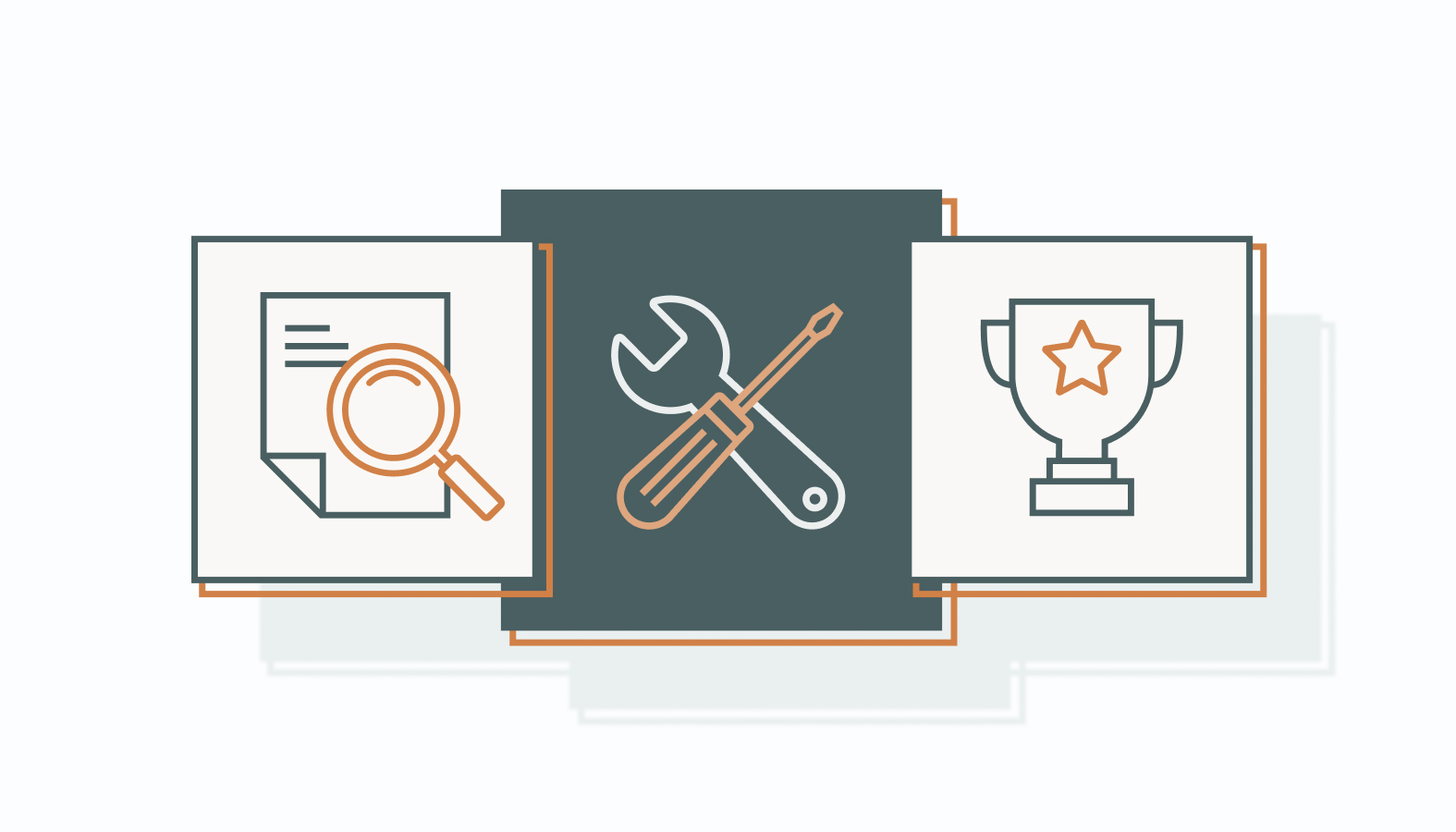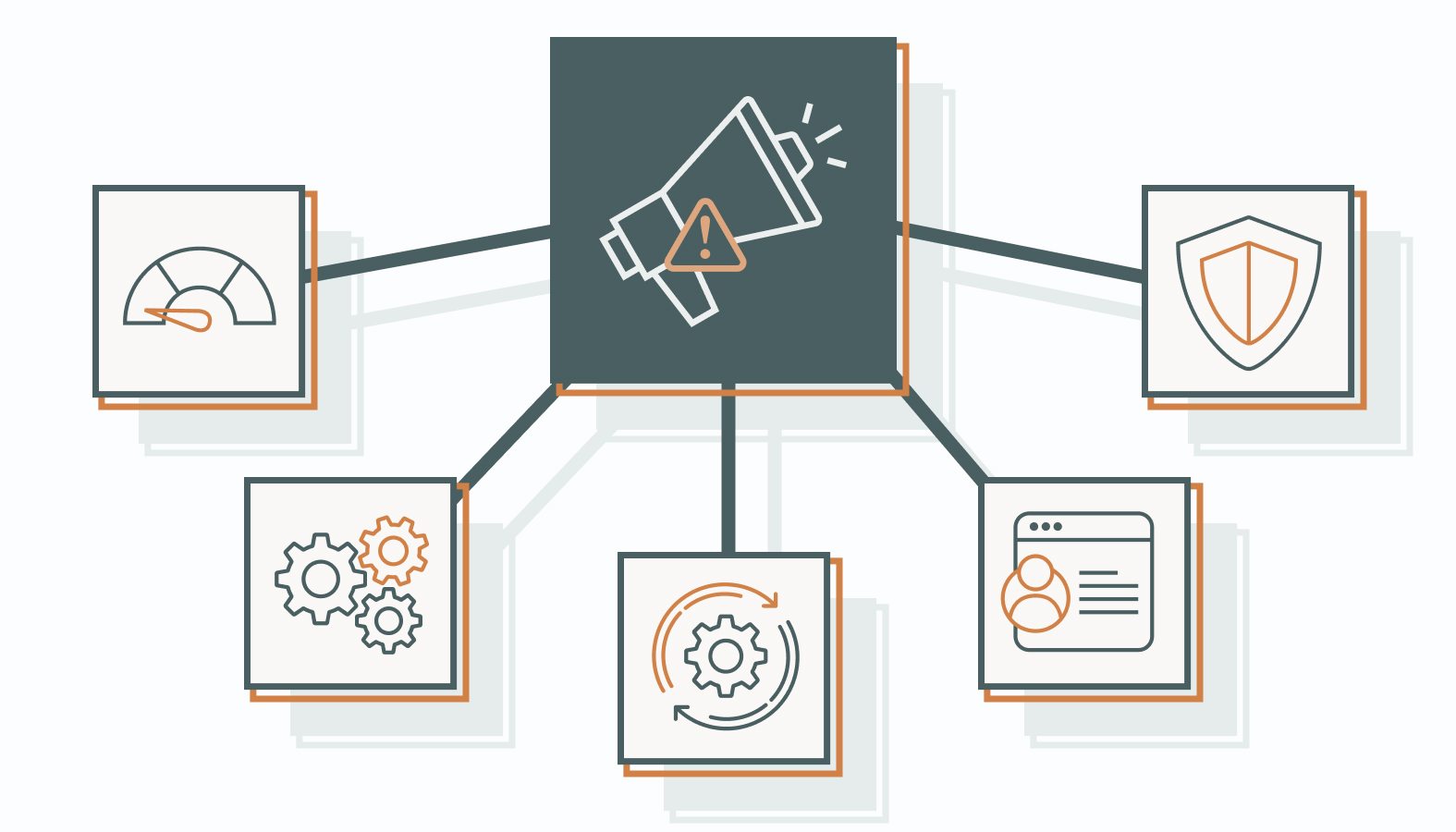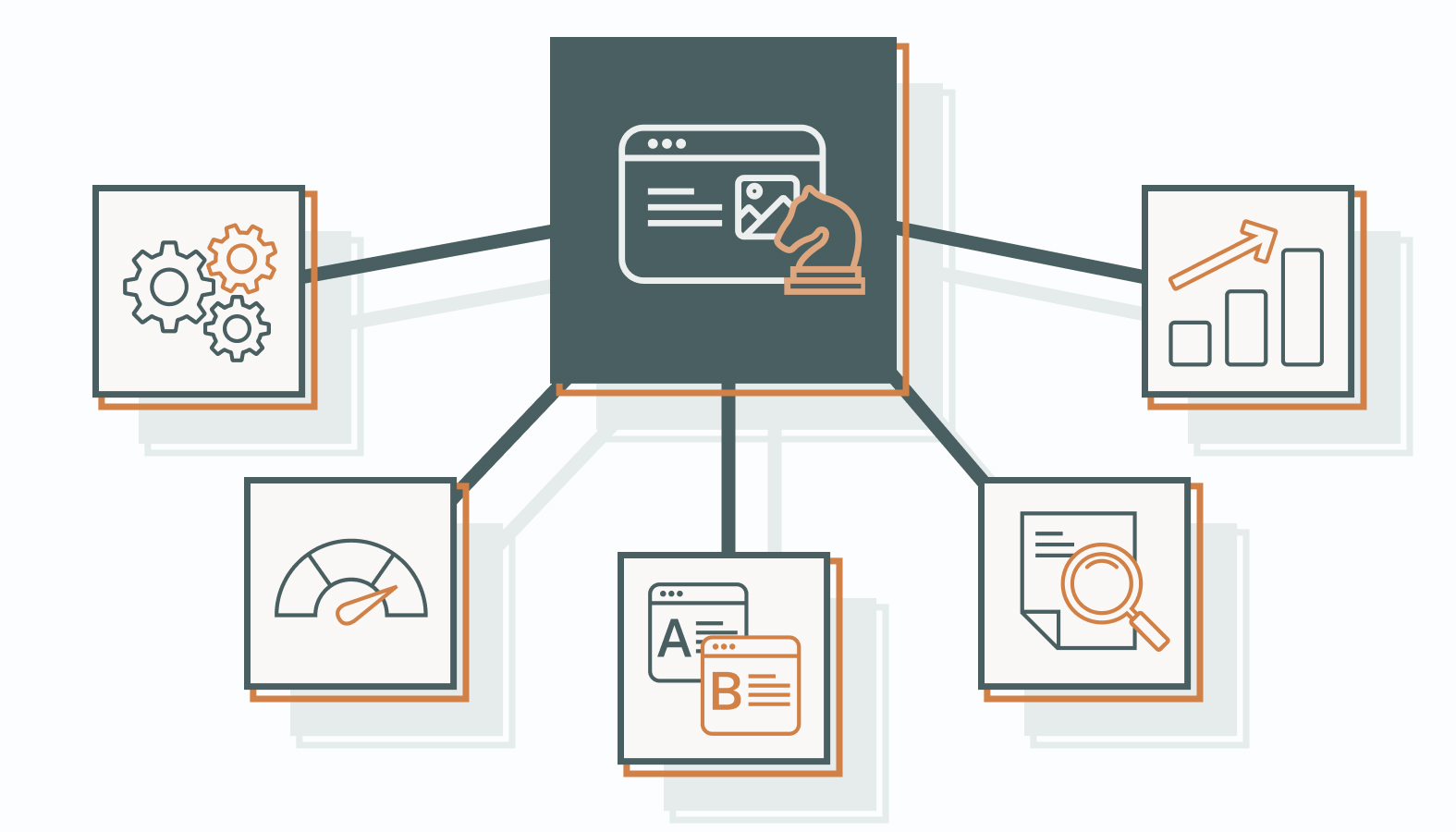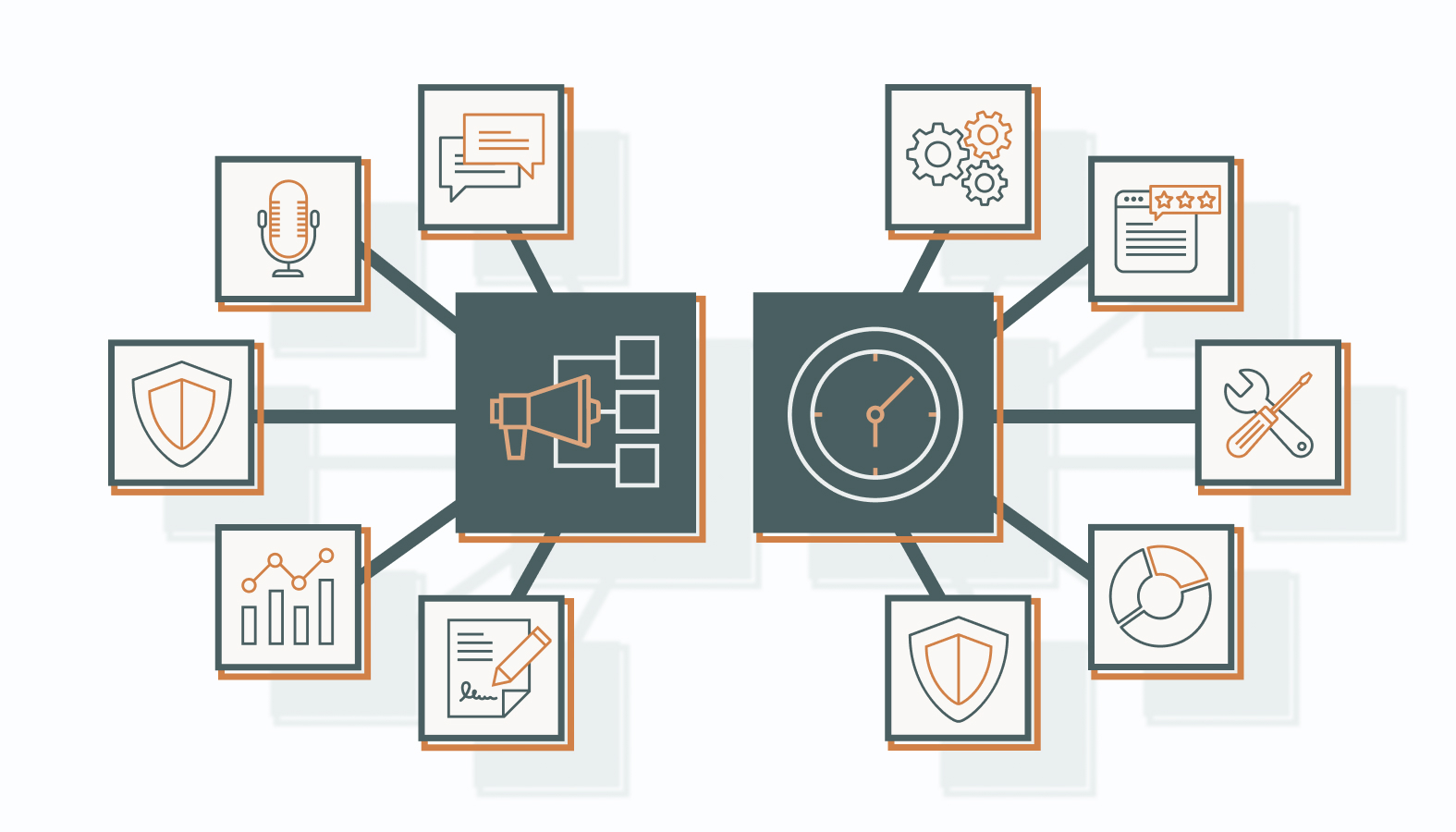The days of one-size-fits-all marketing are gone. Today’s consumers expect brands to know them, anticipate their needs, and engage at the exact right moment. Trying to do that manually isn’t just inefficient — it’s nearly impossible.
Enter B2C marketing automation platforms. These tools speed up campaigns, deliver personalized experiences at scale, and give you the insights to fine-tune every interaction.
The catch? With a crowded market promising to “revolutionize” your marketing, picking the wrong platform can be expensive and disruptive. Companies often stumble trying to figure out which features truly matter, how to align a platform with their objectives, or how to integrate it smoothly with existing systems.
This guide highlights the real benefits of automation, shares the platforms setting the standard in 2025, and provides a clear, practical roadmap to choosing and implementing the right solution for your business.
Benefits of B2C Marketing Automation
In a crowded digital marketplace, efficiency isn’t enough. Impact is what separates leaders from followers.
B2C marketing automation gives businesses the tools to move beyond routine tasks and elevate the customer experience. It’s not just about sending emails or scheduling posts; it’s about orchestrating interactions that feel timely, relevant, and intelligent.
What Does Marketing Automation Do?
At its core, B2C marketing automation is software that streamlines repetitive marketing tasks while providing actionable insights.
Think of it as a command center: it manages audience segmentation, orchestrates campaigns across channels, tracks behavior, and feeds analytics into decisions that matter.
By turning data into action, automation allows brands to engage customers with precision, consistency, and measurable results.
Why It Matters
Understanding its impact reveals how automation drives smarter engagement and tangible business results.
-
Drive Smarter Customer Engagement
Automation doesn’t replace human creativity; it amplifies it.
By leveraging behavioral data and customer signals, brands can deliver experiences that feel curated, not generic.
Timely messages, personalized offers, and dynamic content keep your brand top-of-mind, cultivating loyalty and repeat interactions without stretching your team thin.
-
Free Up Teams for Strategic Work
Marketing teams shouldn’t be tied to repetitive tasks.
Automation handles the groundwork like emails, social posts, and ad triggers, so your people can focus on strategy, experimentation, and creative campaigns that deliver measurable impact.
Efficiency isn’t just a productivity boost; it’s a catalyst for smarter, higher-impact marketing.
-
Turn Data Into Decisions
Modern marketing is powered by insight.
Automation platforms consolidate customer data from multiple touchpoints, revealing patterns, preferences, and opportunities. These insights go beyond vanity metrics; they inform strategy, highlight gaps, and guide campaigns toward measurable ROI.
In short, you spend less time guessing and more time acting.
-
Optimize Conversions Across the Funnel
Targeted, automated campaigns keep prospects moving seamlessly from awareness to purchase.
Lead nurturing, timely follow-ups, and personalized messaging increase the likelihood of conversion at every stage. When campaigns are designed around the customer journey, automation becomes a revenue engine.
In today’s competitive landscape, the right automation strategy transforms operations from reactive to proactive, letting businesses engage smarter, scale faster, and deliver experiences that resonate.
Leading B2C Marketing Automation Platforms for 2025
Picking the right marketing automation platform can make or break your B2C strategy. The right tool must be able to streamline campaigns and scale with your growth.
For 2025, these platforms stand out for innovation, usability, integration, and flexibility, ensuring they meet today’s needs while staying ready for tomorrow’s challenges.
1) Insider
Who it’s for: B2C brands seeking sophisticated personalization across web, mobile, and email.
Insider delivers next-level customer engagement with AI-driven recommendations, personalized web push notifications, and advanced segmentation. Its multi-channel approach ensures messages reach the right customer, at the right time, every time.
2) ActiveCampaign
Who it’s for: Businesses looking to combine email marketing, CRM, and automation in one unified platform.
ActiveCampaign excels in connecting email marketing with CRM insights. Its automation workflows allow for finely tuned customer journeys, turning behavioral data into timely, relevant messaging. Its seamless integrations keep all customer touchpoints unified and actionable.
3) Klaviyo
Who it’s for: E-commerce businesses on Shopify, Magento, or similar platforms, aiming for highly targeted campaigns.
Klaviyo powers e-commerce growth with deep platform integrations and a data-driven marketing approach. Its analytics provide precise insights into customer behavior, enabling campaigns that resonate at every stage of the funnel.
4) HubSpot Marketing Hub
Who it’s for: Companies seeking a full-featured platform that scales with marketing, sales, and service teams.
HubSpot’s Marketing Hub offers an all-in-one automation solution with strong CRM integration, making customer data central to every campaign. Its intuitive interface and extensive resources help teams move fast while staying strategic.
5) Mailchimp
Who it’s for: Growing businesses looking for an easy-to-use, all-in-one marketing automation tool.
Mailchimp is ideal for small to mid-sized businesses that need simplicity without sacrificing power. Its multichannel automation and robust analytics let teams execute effective campaigns quickly and confidently.
Selecting the Best B2C Marketing Automation Platform
Choosing a marketing automation platform isn’t a tech decision—it’s a business decision.
The right platform aligns with your objectives, scales with growth, and adapts as customer expectations and technology evolve. Picking poorly can stall campaigns, create operational friction, or limit future opportunities.
Assess Your Business Needs
Before evaluating platforms, get clear on your marketing goals and operational realities.
Ask yourself:
- What outcomes matter most?
- Are you aiming to boost retention, expand revenue, or streamline workflows?
Understanding your priorities ensures you select a platform that supports (not complicates) your strategy.
Define Success Metrics
Set specific, measurable objectives. A goal like increasing retention by 20% in 12 months points directly to features that matter: personalized campaigns, behavior-driven triggers, or predictive analytics.
Audit Existing Tools
Identify your current systems, from CRM to analytics platforms. Choose a solution that integrates seamlessly to avoid fragmented workflows and wasted effort. Integration is less about bells and whistles and more about creating a unified operational backbone.
Pinpoint High-Impact Features
Not all features are equal. Focus on capabilities that scale with your business and provide lasting value.
Integration First
A platform that talks to your CRM, e-commerce, and analytics systems creates a single source of truth. This unified view makes campaigns smarter, segmentation more precise, and personalization truly personal.
AI and Machine Learning
Leverage platforms that turn data into foresight. Predictive analytics, powered by AI, identifies patterns in customer behavior and triggers timely interactions. It’s how you move from reactive marketing to proactive, precision-driven campaigns.
Scalability and Flexibility
Your automation platform should grow with you. Evaluate user limits, data handling capacity, feature expansion, and vendor support. Scalability isn’t optional—it’s insurance against stagnation and tech debt.
A well-chosen platform becomes more than software—it’s a force multiplier. It unifies customer data, elevates personalization, and frees your team to focus on strategy, creativity, and growth.
When selection is intentional, automation ceases to be a tool and becomes a competitive advantage.
Common Challenges When Adopting B2C Marketing Automation Platforms
Jumping into marketing automation promises big gains but comes with its own set of hurdles. The wrong approach can create friction, frustrate customers, and waste resources. Recognizing potential pitfalls early lets you plan strategically and protect your investment.
Here are the most common pitfalls:
Data Silos and Inconsistent Data Quality
- CHALLENGE: Marketing automation relies on clean, unified data. But many businesses struggle with fragmented data stored across different systems. This limits the ability to personalize messages accurately, leading to generic or mistimed communications that frustrate customers.
- SOLUTION: Audit and cleanse your data consistently. Consolidate datasets to create a single source of truth. Reliable data ensures every automated interaction feels relevant and intentional.
Complex Integrations and Tech Stack Fragmentation
- CHALLENGE: Adding an automation platform isn’t plug-and-play. Integrating it with existing CRMs, e-commerce platforms, and analytics tools can get complicated. Poor integration creates inefficiencies and even data loss, making workflows clunky and hard to manage.
- SOLUTION: Choose platforms with strong integration capabilities and involve IT early. Map workflows and test end-to-end connectivity to maintain seamless operations.
Over-Reliance on Automation
- CHALLENGE: Efficiency without humanity backfires. Over-automated messaging can feel robotic, stripping away brand personality and eroding trust. Successful automation amplifies strategy, but it shouldn’t replace the human touch.
- SOLUTION: Combine automation with human insight. Schedule touchpoints that allow for personalized follow-ups, creative campaigns, and customer interactions that retain warmth and authenticity.
Limited Internal Expertise
- CHALLENGE: Modern platforms are powerful, but they tend to be underutilized without the right skills. Teams without proper training may only scratch the surface, leaving opportunities on the table. Investing in certified experts or structured training ensures you extract maximum value.
- SOLUTION: Invest in structured training or bring in certified experts. Empower your team to harness the full capabilities of your automation platform and turn data into actionable strategies.
Privacy and Regulatory Compliance
- CHALLENGE: Regulations like GDPR and CCPA are non-negotiable. Automation platforms must support compliant data practices, and marketers need a clear understanding of privacy rules to safeguard trust and avoid fines.
- SOLUTION: Stay updated on evolving privacy laws and configure platforms to enforce compliance. Build processes that protect customer data and maintain brand credibility.
By anticipating these hurdles, you’re better equipped to build an automation strategy that’s effective and sustainable.
Implementing a B2C Marketing Automation Strategy
You don’t just flip a switch when rolling out a marketing automation strategy. You’re orchestrating a plan that aligns with your goals, complements your existing systems, and drives measurable impact.
Seamless Integration with Existing Systems
Start by auditing your current tech stack.
Identify critical systems — CRMs, e-commerce platforms, analytics tools — that must connect with your automation platform.
Use APIs or middleware to bridge gaps and ensure smooth communication across systems.
Involve IT and marketing teams early and plan integration during low-traffic periods to avoid disruptions.
The goal is a unified workflow where automation enhances, rather than complicates, operations.
Define Key Performance Indicators (KPIs)
Metrics turn effort into insight.
Establishing KPIs that reflect real business impact, such as customer engagement, conversion rates, and lifetime value, is a solid starting point.
Clear benchmarks let you track performance, uncover opportunities, and course-correct quickly. Every automated action should tie back to a measurable outcome.
Pilot Campaigns for Strategic Testing
Before scaling, test with a focused segment of your audience.
Craft targeted campaigns and leverage A/B testing to evaluate messaging, timing, and workflow efficiency. Collect feedback and analyze results to identify what drives engagement and conversion.
Pilots aren’t just experiments — they’re your blueprint for success at scale.
Assess and Interpret Early Results
Dive into campaign data to understand customer behavior.
Track click-through rates, heat maps, and conversion trends to see which tactics resonate.
Use insights to refine workflows, tweak messaging, and optimize timing. Early evaluation prevents small issues from becoming large-scale inefficiencies.
Refine and Optimize Continuously
Marketing automation isn’t “set and forget.”
Iterate constantly: adjust segmentation, test new messaging, and refine triggers as customer behavior evolves.
By embedding a culture of ongoing optimization, you keep campaigns aligned with business objectives and market realities, ensuring automation remains a tool for growth, not just a convenience.
Emerging Trends and Future-Proofing Your B2C Marketing Automation
Marketing automation is evolving at lightning speed. Staying competitive means anticipating trends and building a strategy that adapts before your competitors do.
Here’s what’s shaping B2C marketing in 2025 and beyond:
- AI-Driven Chatbots: These aren’t just for FAQs. Advanced bots qualify leads, personalize conversations, and even close sales around the clock, turning engagement into revenue without extra headcount.
- Voice Search & Automation: Voice-triggered campaigns are no longer futuristic—they let brands interact with customers hands-free, delivering timely, context-driven messaging.
- Privacy-First Automation: Compliance isn’t optional. Platforms must align with GDPR, CCPA, and other regulations while still enabling personalized experiences that build trust.
- Real-Time Predictive Analytics: Instant insights allow brands to anticipate customer behavior and respond immediately, turning data into proactive engagement.
- Sustainability & Social Responsibility: Automation can spotlight ethical practices and social initiatives, strengthening brand credibility with conscious consumers.
Trends alone aren’t enough. Future-proofing your strategy requires concrete actions:
- Review and Update Workflows Regularly: Quarterly audits ensure campaigns evolve with customer behaviors and business goals.
- Stay Informed on Technology and Customers: Monitor innovations and shifting preferences to pivot faster than the market.
- Choose Flexible Platforms: Modular tools with strong support make adaptation seamless, not disruptive.
- Build Adaptable Data Systems: Flexible architectures allow new data sources and formats to integrate without expensive overhauls.
- Plan for Privacy Changes: Proactive compliance keeps marketing ethical, legal, and uninterrupted.
By pairing awareness of emerging trends with tactical execution, your B2C marketing automation strategy becomes agile, resilient, and ready to drive results today and scale tomorrow.
Making Marketing Automation Your Competitive Advantage
In today’s fast-moving digital landscape, B2C marketing automation isn’t optional—it’s essential. The right platform lets you deliver personalized experiences, streamline operations, and turn data into actionable insights, all while saving time and resources.
Choosing the right platform is like picking the perfect partner for a dance: it must move in sync with your objectives, adapt as your business grows, and keep your marketing strategies agile and effective.
Key Takeaways:
- Automation amplifies your marketing impact, letting you engage customers with precision and relevance.
- Platform choice matters: align features, integrations, and scalability with your strategic goals.
- Data quality and clean systems are the foundation of effective automation.
- Combine automation with human insight to maintain authentic, high-value customer interactions.
- Future-proof your strategy by staying on top of trends, leveraging AI, and prioritizing privacy and compliance.
Ready to get your marketing automation right from the start? Book a strategy session with one of our automation experts. We’ll help you choose the right platform, integrate it seamlessly, and turn automation into a measurable growth engine from day one.

